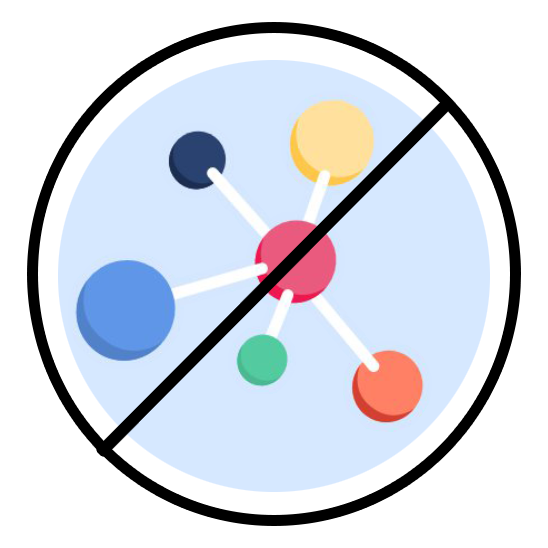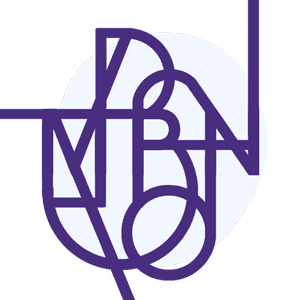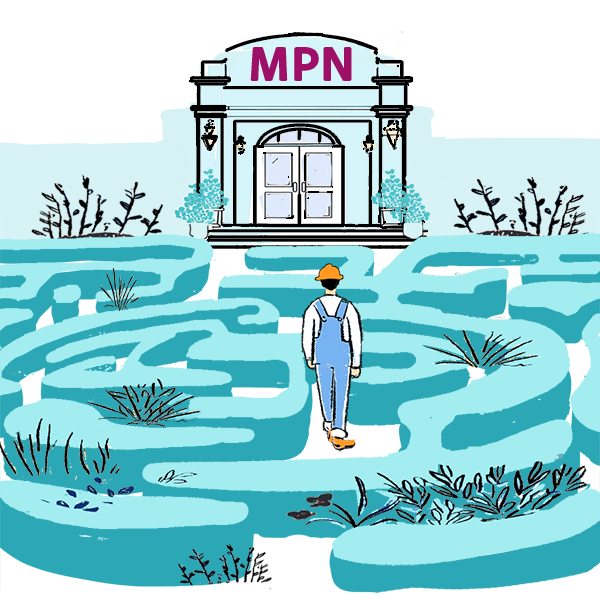Sedgwick: Sham MPN Impedes Care?

If you need proof that California’s Medical Provider Network (MPN) system is catastrophically flawed, look no further than the case of the injured worker below.
Third-Party Administrator (TPA) Sedgwick acknowledged an injured worker needed an evaluation by a specialist. However, despite Sedgwick granting approval in January, the injured worker failed to receive that care for over three months — thanks in no small part to Sedgwick’s initial insistence that a specialist from a terminated MPN provide the care.
The documents below reveal the steps Sedgwick followed, which arguably delayed this injured worker’s access to medically necessary treatment:
- Sedgwick authorized treatment by a specialist on the condition the specialist is listed in a terminated MPN.
- The terminated MPN in question seemingly applies to the wrong carrier.
- Subsequently, Sedgwick offered a non-MPN specialist a blanket, carte-blanche “authorization” with no specific treatment details.
When the non-MPN specialist requested authorization for specific treatment and requested reimbursement assurance, a Sedgwick adjuster simply replied, “I will make sure these bills are paid.”
As of last week, the injured worker has yet to receive the treatment originally authorized in January of this year.
The information below clearly illustrates that once a doctor receives permission to treat an injured worker, MPNs do not exist to help deliver care. MPNs only give organizations like Sedgwick leverage to direct care to Sedgwick’s “preferred vendors.”
MPNs do not facilitate treatment. Instead, they delay care and deny injured workers the guarantee of the Grand Bargain of workers' compensation: that the employer or its insurer will cover the cost of care.
Sedgwick's abuse of MPNs arguably suggests that every person injured on the job in California should consult an attorney from the very beginning.
Care Approved by Sedgwick
All medical treatment and services for injured workers must be authorized through California's Utilization Review (UR) process. The employer’s UR organization decides whether the proposed treatment is medically necessary and appropriate.
The MPN system complicates this process, especially when the primary treating physician realizes the injured worker needs specialist care. Too often, this creates a treatment “dead end” for the injured worker when finding an MPN specialist proves difficult or impossible.
On January 5 of this year, per California law, a requesting physician faxed Sedgwick a Request for Authorization (RFA), shown below, for a neuropsychological evaluation from an appropriate specialist.
On January 10, Sedgwick sent the requesting physician a UR decision, approving the neuropsychological evaluation.
However, the authorization came with a warning: the authorized treatment "must be provided within the above network," referring to the Sedgwick/Harbor MPN - Republic AG MPN.
In the authorization, Sedgwick highlights the consequences of treating outside the specified MPN: "Failure to utilize our preferred vendors listed above may result in denial of treatment and charges."
Additionally, the letter asserts that Sedgwick manages claims for Falls Lake Fire and Casualty Company.
Terminated and Unverifiable MPN
No surprise here (at least not to us) — the MPN Sedgwick specified is listed as Terminated by the Division of Workers’ Compensation (DWC). For those new to the blog, this is a disturbingly common occurrence, especially when Sedgwick’s involved.
Moreover, the DWC List of Approved MPNs identifies Republic Underwriters Insurance Company as the applicant for this MPN, not Falls Lake Fire Casualty Company, the carrier identified in Sedgwick's authorization letter.
According to the DWC List, Falls Lake Fire Casualty Company does not maintain an MPN.
To recap, Sedgwick authorized care and made payment for that care dependent on the specialist being in an MPN that:
- No longer exists, and
- Seemingly does not apply to the insurer identified by Sedgwick.
How is this injured worker expected to access care under these conditions? How are providers expected to provide it (except for free, as Sedgwick’s wielding of MPNs has demonstrated before)?
Three Months Later: Still No Care
A staggering three months after Sedgwick’s authorization, the injured worker still had not received the medically necessary treatment; the sham MPN made it impossible. To repeat: injured workers might consider lawyering up from the first day of a work-related injury.
Finally, on April 7, a nurse case manager sent an email (below) to an appropriate specialist, imploring the specialist to perform the approved neuropsychological evaluation. The nurse case manager included the original authorization letter from Sedgwick.
Confronted with the terminated, dubious MPN in Sedgwick's original letter of approval, the doctor demanded more specific authorization from Sedgwick, including both the treatment and the doctor's name, and acknowledgment that Sedgwick would pay a non-MPN doctor for that care.
Sedgwick disregarded the doctor's request, sending the letter below with a vague authorization statement: "This letter is to serve as an authorization to treat the injured worker indicated above with necessary and reasonable medical care."
Sedgwick neglected to explicitly authorize the neuropsychological evaluation treatment and provided an all-encompassing authorization for…what treatment exactly? This blatant ambiguity further delayed care, as the doctor was forced to pursue explicit approval from Sedgwick.
Specialist Requests Detailed Authorization
Fully aware of the payment havoc that can ensue from a vague “blanket” authorization issued to a non-MPN provider, the specialist insisted on details. The specialist requested more specific authorization from Sedgwick, including the proposed treatment.
This is a consequence of California’s double standard. Doctors must request authorization in a standardized format using DWC Form RFA. Claims administrators, however, are subject to no equivalent requirements when granting authorization; they may communicate UR decisions in emoji form if they choose.
Sedgwick Swears They’re Good For It
Instead of returning an authorization with a reasonable level of specificity, the Sedgwick claims adjuster simply returned a one-line email claiming “this is all authorized” and promising to personally “make sure these bills are paid.”
No mention of specific neuropsychological treatment and no addressing the ever-present MPN issue (despite previously authorizing the same treatment only within the confines of a non-existent MPN). Sedgwick offers only a casual note that may or may not be binding, essentially asking the specialist to trust the adjuster.
We’ve seen what happens to providers who place their trust in Sedgwick enough times to consider this “authorization” less than ideal.
The MPN Trap
For Sedgwick to be so specific in its initial authorization (predicated on sending the patient only to its “preferred vendors”) yet so vague in its second authorization raises the following questions:
- Why did Segwick, having failed to steer the patient to one of its “preferred vendors” through a non-applicable, non-existent MPN, suddenly decide the whole MPN thing was a non-issue and furnish a blanket “authorization” worth less than the paper it was printed on?
- Who exactly are these "preferred vendors" Sedgwick insists injured workers receive care from?
- What incentives or benefits (i.e., massive discounts) is Sedgwick receiving for funneling patients to these “preferred vendors?”
This injured worker is a textbook victim of the broken MPN system — a system claims administrators use as nothing more than a cudgel to steer care towards "preferred vendors,” i.e., networks of providers willing (or cajoled) to take the steepest reimbursement cuts.
When injured workers face obstacles to treatment, there is no one to intervene and support them, despite unenforced, farcical regulations requiring MPNs to maintain Medical Access Assistants (MAAs) and provider contacts to help direct care.
We hope this worker gets the care they need and that whoever provides it is reimbursed appropriately. But if it weren’t for MPNs, we wouldn’t have to settle for hope.
Workers’ comp can work for providers. daisyBill software, data, and expertise makes billing easier, faster, and less costly. Request a free demonstration below.
REQUEST DEMO
DaisyBill provides content as an insightful service to its readers and clients. It does not offer legal advice and cannot guarantee the accuracy or suitability of its content for a particular purpose.



.png)

